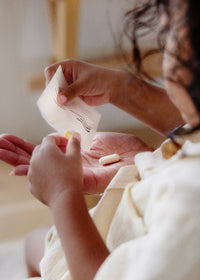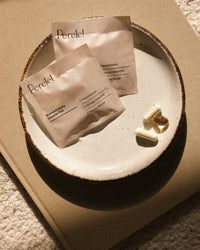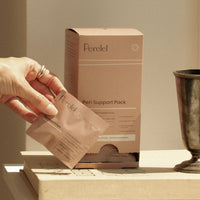The author of the 19th-century precursor to What to Expect When You're Expecting. The subject of a landmark Supreme Court case that would protect parental leave. The Surgeon General who was ousted for advocating for comprehensive sex ed and widespread access to contraception. So much of the crucial progress we've made in maternal and reproductive healthcare stands on the shoulders of Black women who persevered and risked it all for their communities and for future generations. And against the backdrop of a healthcare system that underrepresents Black women in countless ways, amplifying these stories is all the more crucial.
Below, learn the stories of seven incredible women who advanced women's health in immeasurable ways.
Lillian Garland: Won a landmark Supreme Course case for parental leave
Garland was working at a California bank in 1982 when, in accordance with state law, she took 2 months of unpaid leave to have a baby. When Garland returned from leave, the bank told her that her position had been replaced. Without a job, Garland was eventually evicted and lost custody of her baby girl—driving her to bring her case to court.
In court, the bank argued that state requirements around maternity leave were unconstitutional and discriminatory towards other employees. With the support of activist Betty Friedan and Garland’s lawyer, Patricia Shiu, Garland took her story public, advocating on behalf of other families who didn’t have a platform. Her case eventually made its way to the Supreme Court—who, in a landmark 1987 decision, ruled that the California law mandating employers to provide unpaid maternity leave was constitutional. The court argued that there was nothing stopping employers from providing unpaid paternal leave, too—which meant that it wasn’t inherently discriminatory. On the flip side, as Betty Friedan noted: “There has to be a concept of equality that takes into account that women are the ones who have the babies.’’
“Women should not have to choose between having a job and having a baby,” said Garland in 1987. “I think how many millions of women have been helped. It will affect my daughter and her daughter. It wasn’t just for me.”
Dr. Joycelyn Elders: Surgeon General and outspoken advocate for sex ed
As a pediatrician and public health administrator, Dr. Elders saw the crucial link between sex education and better health outcomes, particularly for young women in underserved communities—so much so, that she made it one of her signature issues as the Director of the Arkansas Department of Health, and then as the first African American US Surgeon General in 1993. Her views on contraception access and comprehensive, science-based sexual education in public schools were considered controversial at the time—and she was ultimately asked to resign by the Clinton administration in 1994. 30 years later, Dr. Elders’ fight for medical accessibility and widespread body literacy feels as relevant as ever.
Biddy Mason: A midwife who became one of Los Angeles’ most prominent landowners and philanthropists
Born into slavery in Mississippi, Biddy Mason learned midwifery and herbal medicine from other enslaved women. After traveling to California, she fought for her family’s freedom in court and won in 1856—and after working as a successful midwife for several years, she was able to purchase land in Los Angeles. She quickly become a prominent community figure, donating her fortune to charities, feeding the homeless, and opening a daycare center for Black children.
Dr. Rebecca Lee Crumpler: The first Black woman to receive a medical degree in the US—and dedicated her career to maternal health
>In 1864, Dr. Crumpler became the first Black woman in the US to receive a medical degree—at the time of the 54,543 physicians in the country, 270 were white women, and just 180 were Black men. Despite immense challenges and racism from her white male peers—preventing her from getting certain prescriptions filled for her patients, or even working in certain hospitals—Dr. Crumpler went on to leverage her expertise to support and treat newly emancipated African Americans. She also published A Book of Medical Discourses in 1883, which was dedicated to nurses and mothers and has been described as an early precursor to What to Expect When You’re Expecting.
Dr. May Edward Chinn: A pioneer of cancer research who helped develop the pap smear
In 1926, Dr. Chinn became the first Black woman to graduate from Bellevue Hospital Medical College (now known as the New York University School of Medicine—but quickly discovered that no hospital would provide her practicing privileges, since African Americans were not allowed to hold hospital residencies or research posts at the time. She ultimately joined Harlem Hospital as a medical intern—but when the hospital refused to grant her practicing privileges as well, she left to establish her own private practice, where she focused on providing care to African Americans who were often denied treatment in white facilities. She also earned her master’s degree in public health from Columbia University in 1933.
Throughout her decades-long career, Dr. Chinn focused on cancer detection—helping to develop screening techniques like family history and the pap smear. At the age of 79 in 1975, she established a society that would help Black women attend medical school.
Dr. Helen Octavia Dickens: An OB/GYN dedicated to medical equity and the education of young mothers
In the 1940s, Dr. Dickens became the first African American board-certified OB/GYN in Philadelphia—an initial milestone in a career full of trailblazing firsts. Dr. Dickens focused her work on maternal health and medical advocacy for Black women, and would become the first Black woman to be accepted to the American College of Surgeons in 1950.
In 1967, Dr. Dickens opened a teen clinic at the University of Pennsylvania, offering services like counseling, sexual health education, and prenatal care. A fierce advocate for body literacy and widespread sex ed, she spearheaded research around STIs and teen pregnancy.
Henrietta Lacks: A patient who posthumously transformed cancer research—and the way we talk about medical consent
On a January day in 1951, Lacks went to Johns Hopkins—the only hospital nearby that would admit Black patients—complaining of a “knot” in her womb. She was only 31 when she passed away from cervical cancer, and her death would unwittingly become a flashpoint for both medical ethics and cancer research.
Prior to her death, surgeons had extracted tissue from Lacks’ cervix with the hope that it could be studied for cancer research. Lacks was unaware of the biopsy. Even after her death, the “immortal” cancerous cells in Lacks’ tissue thrived and multiplied. These now-famous “HeLa” cells would ultimately become one of the most important cell lines in medical research, contributing to vaccines for Polio, Parkinson's, and leukemia. That said, when Lacks’ family learned that her cells had unknowingly been taken and leveraged for this research, it sparked a crucial debate around medical ethics and consent.
At Perelel, we believe that it's on all of us to build on the legacy of the brave women who aimed to build a better future for us all. That’s why we’re committed to addressing disparities in women’s healthcare and connecting underserved women with essential reproductive support. For every subscription to our Motherhood Suite, we donate a supply of vitamins to a woman who lacks access to quality prenatal care—and we're also committing to closing the women's health research gap, which continues to exacerbate these disparities.
$49.95
$49.95
$49.95
Shop the Article:

Conception Support Pack*
/ Month
Shop Now
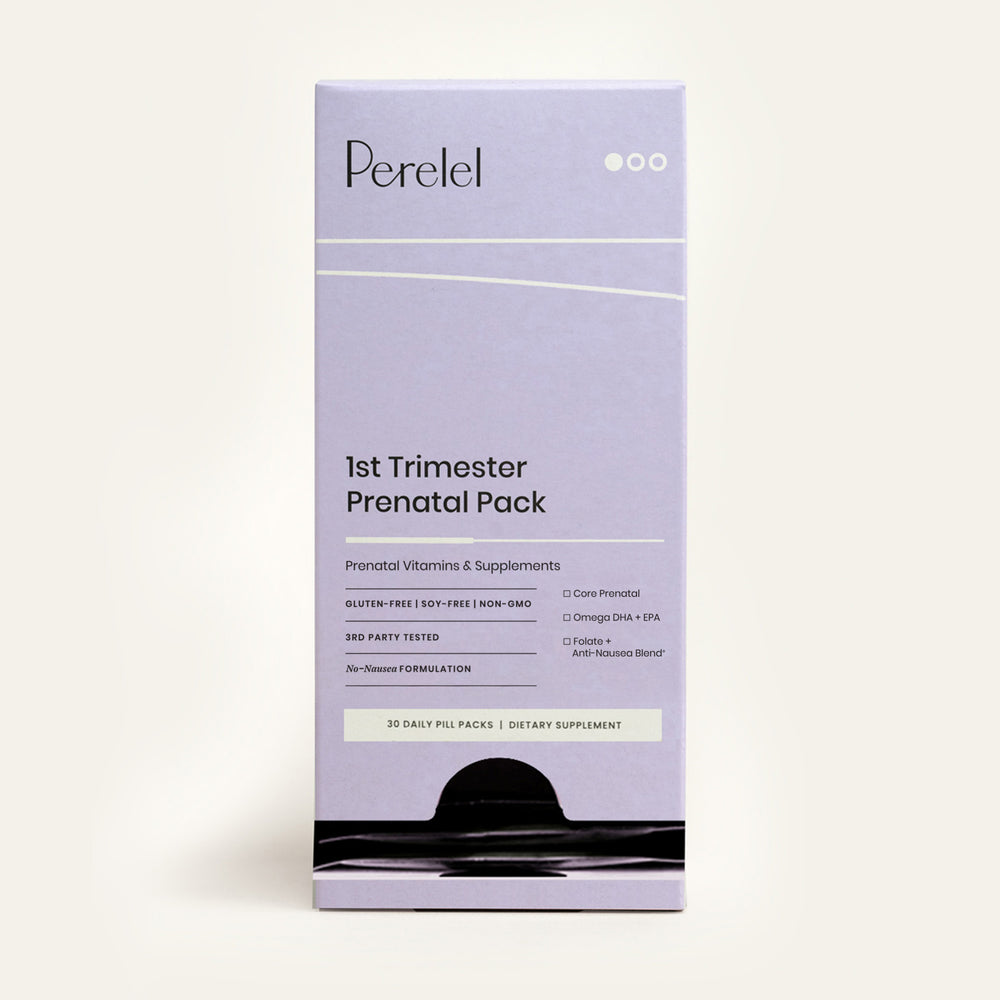
1st Trimester Prenatal Pack
/ Month
Shop Now
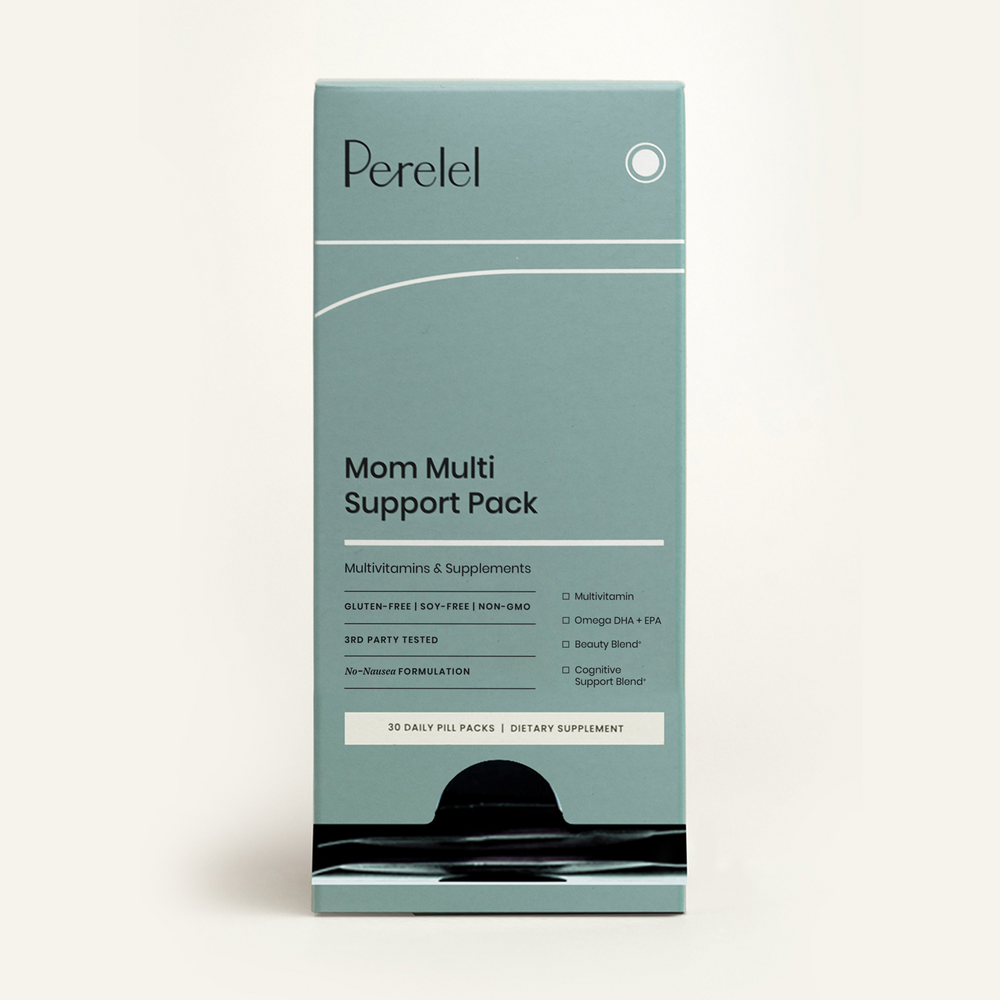
Mom Multi Support Pack
/ Month
Shop Now
Let's create a world with more healthy, supported women—together.
Next up: Let's talk about the menstrual health knowledge gap.
Further Reading:
Chicago Tribune. (2021b, August 8). Court victory in war on sex bias was not without serious casualties.
National Institutes of Health. (2015, June 3). Changing the face of medicine | M. Joycelyn Elders. U.S. National Library of Medicine. https://cfmedicine.nlm.nih.gov/physicians/biography_98.html
Dogmo Studios | Eliza Wee | @ewee. (2018, June 28). Biddy Mason - gold chains: The hidden history of slavery in California: ACLU NORCAL. ACLU of Northern CA. https://www.aclunc.org/sites/goldchains/explore/biddy-mason.html
National Institutes of Health. (2015b, June 3). Changing the face of Medicine | Rebecca Lee Crumpler. U.S. National Library of Medicine. https://cfmedicine.nlm.nih.gov/physicians/biography_73.html
Communications, N. W. (n.d.). Unsung Pioneer. NYU. https://www.nyu.edu/about/news-publications/publications/alumni-magazine/fall-2021-winter-2022/features2/Chinn.html
Helen Octavia Dickens, MD, FACS, 1909-2001. ACS. (n.d.). https://www.facs.org/about-acs/archives/past-highlights/dickens/
Encyclopædia Britannica, inc. (2024, January 26). Henrietta lacks. Encyclopædia Britannica. https://www.britannica.com/biography/Henrietta-Lacks






